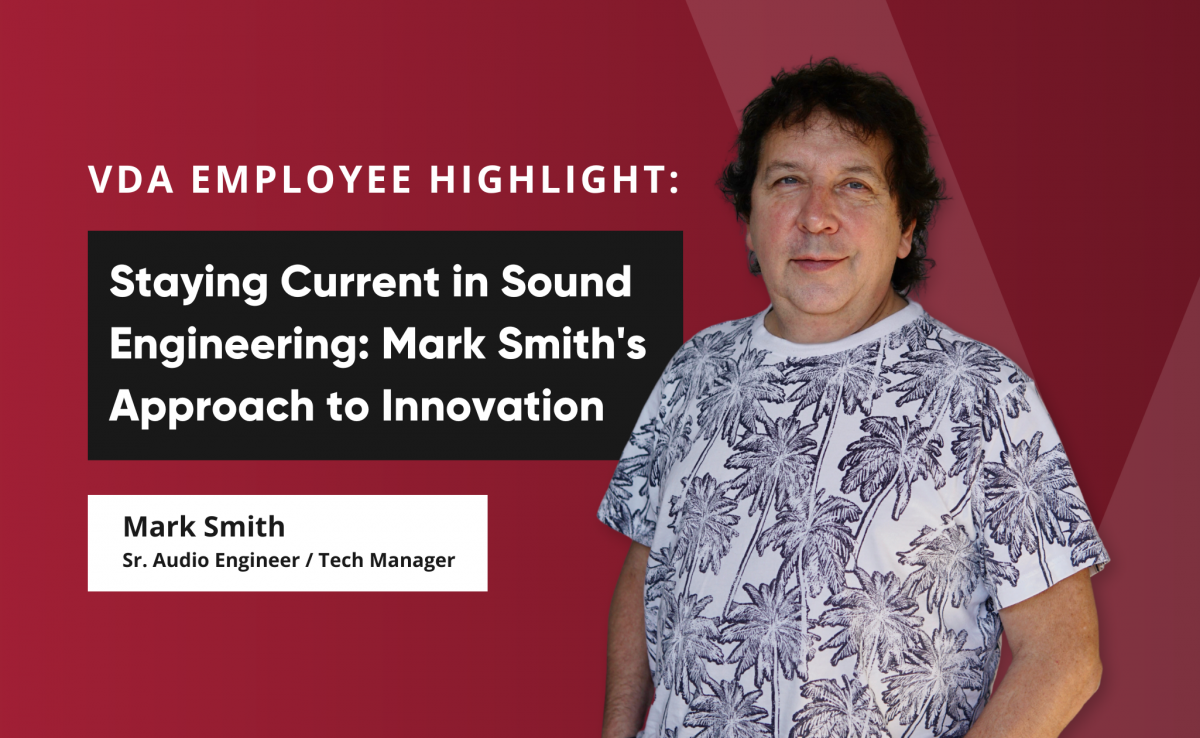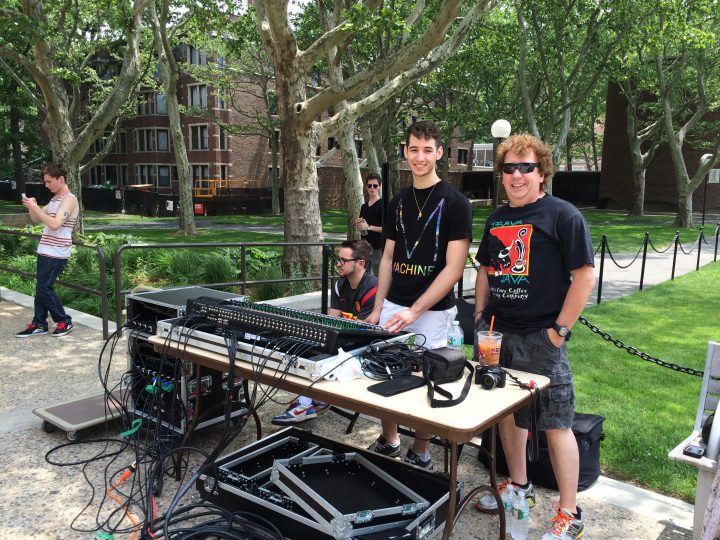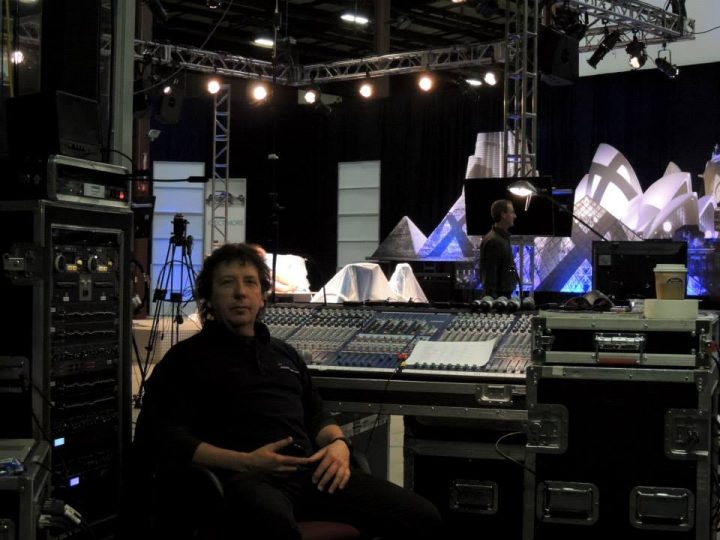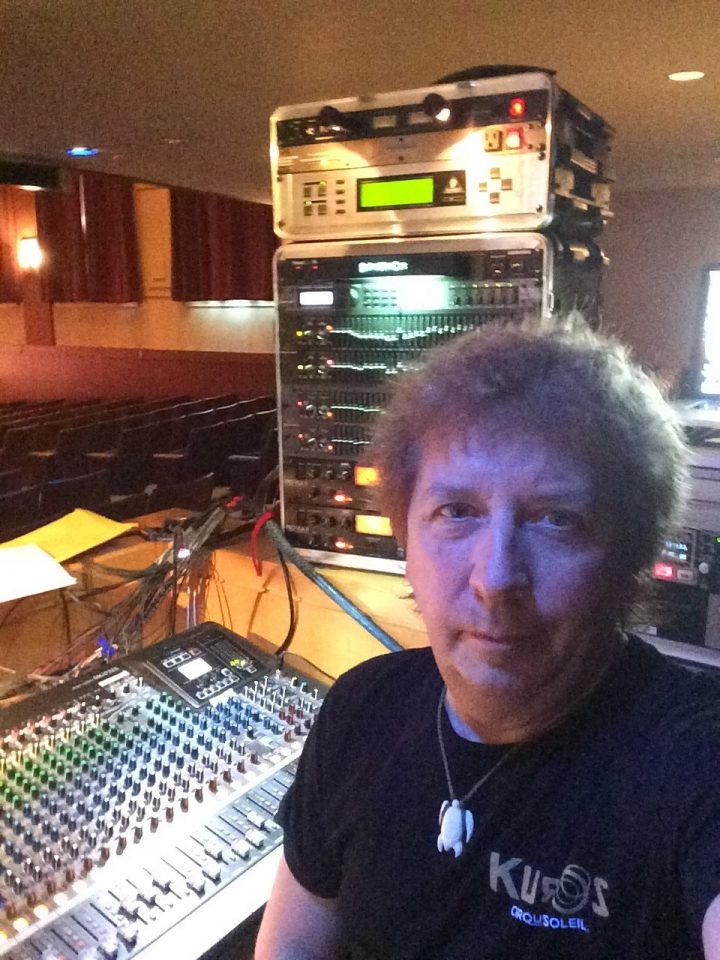
Staying Current in Sound Engineering: Mark Smith’s Approach to Innovation
In the world of sound engineering, staying ahead of the curve and pushing the boundaries of what’s possible is a constant pursuit. Mark Smith, CTS, VDA’s Senior Audio Engineer and Tech Manager with a rich background in theater and events, has made it his mission to not just keep pace with the industry’s evolution but to lead the charge. Today, we dive into Mark’s journey, his perspective on the ever-changing landscape of sound engineering, and his insights on how to keep your edge in this dynamic field.
Can you share your journey of how you entered the events industry and what inspired you to specialize in sound engineering?
Since the age of five, I have been a musician, starting with piano and moving through guitar, trombone, and upright bass. Throughout High School and College, I was heavily involved in musical theatre with a background in Russian Ballet and music. I started working both onstage and backstage as well with lighting and sound but eventually found sound design the most engaging for me with my background in music. I worked on numerous productions in local theatres and colleges until a good friend in the business asked me to work on some projects with him and eventually, I joined the company he was working for.
Over the years, how have you seen the role of sound engineering evolve in the events landscape, and what pivotal moments have influenced this evolution?
Sound design in the events industry has evolved alongside sound design in other industries such as film and live performance stage work. Not surprisingly, the techniques and technology have evolved in many of the same ways. The impact of live events on their attendees requires many of the same aspects as live theatre. In the realm of audio, everyone on stage must be heard clearly and cleanly without distraction from poorly functioning equipment. Microphone technology, for instance, has moved heavily into the wireless world both improving communication of the event along with allowing presenters to move out from the lectern and among the attendees if needed. That technology alone requires a high level of knowledge and equipment to work properly. Video audio has to be as impactful in a ballroom as in a movie theater. Special FX and other sound techniques such as Foley effects can be used well in presentations. The newly emerging immersive audio realm can add massive new components to almost any event or event space.

Among the various events you’ve worked on, could you tell us about one that stands out as your favorite? What made this event so memorable for you in terms of sound engineering elements?
Over the years, I have had the privilege of working on numerous large, challenging, and creatively stimulating events. One that still stands out in my memory took place several years ago in Florida. The client’s vision was to host a special evening dinner event that included awards presentations, expressions of gratitude, and unique entertainment. What made this event particularly memorable was its dynamic setup. In a spacious venue with a soaring ceiling, designed in the ‘theatre in the round’ style, three stages were erected.
Throughout the evening, circus performers took center stage, engaging and entertaining the audience. This setup required intricate surround sound to ensure both the audience and performers could hear the audio cues and music clearly. The synergy between sound engineering, theatrical lighting, and the overall event execution was remarkable, demonstrating that we could achieve more than just the typical PA work for such an event.
In a rapidly changing technological landscape, how do you stay up-to-date with the latest trends and innovations in sound engineering, and how do you incorporate these into your work?
In the rapidly changing environment of Sound Design, continuous learning, and education are required. I research new ideas and techniques as they develop, stay in touch with colleagues in the field to see what they are doing, and attend a number of conferences to stay up with new developments. InfoComm annually is one of the best to see new tech and keep up with the changes. Audio Engineering Society (AES) also has a lot of great information at their events. Additionally, USITT (United States Institute for Theatre Technology) is another organization with indispensable knowledge and events. All of these are extremely important in keeping your game up.

Thought leadership involves pushing boundaries and introducing fresh ideas. Can you share an example of a unique concept or innovation introduced to an event that left a lasting impact?
Thought leadership involves not only embracing new ideas but also having the vision to push the boundaries of what’s possible. Could you please share an example of a unique concept or innovation you’ve introduced to an event that had a profound and lasting impact?
During one of the conferences I previously mentioned, I had the privilege of witnessing groundbreaking presentations in the field of immersive audio applications. These presentations showcased cutting-edge equipment and software processing from industry leaders such as Meyer Sound Laboratories (featuring Space Map and Constellation) and L-Acoustics (highlighting their L-ISA system). To say that I was impressed would be an understatement.
These game-changing technologies not only left a deep impression on me but also opened up new horizons for how I approach sound design in future events. The collective sentiment among attendees was unanimous – this represented one of the most significant advances in sound design in years. It has already reshaped the trajectory and elevated the quality of our craft. Sound design, whether in the context of live theatre or corporate events, is fundamentally about effective communication and storytelling, and these innovations have amplified our ability to convey narratives in ways previously unimagined.
As someone with extensive experience in sound engineering and event tech management, what advice would you offer to aspiring professionals who are considering a similar path in the events industry?
For anyone entering this industry or this art form, I would offer this advice. Never stop learning. Research and explore every aspect of your art now and the new pieces that show up in time. Also I would suggest that you see and experience every show or production that you can, of any size. You can see what you like or what you think was done well along with making note of what you think was not done well or what didn’t fit the event. Just keep learning. I have done tons of events so far but I have seldom done an event or show where I didn’t learn something new every time.

In addition to his work in the corporate events sector, Mark has established himself as a seasoned sound engineer in the world of theatre. Here, you can see him in action during a performance of “The Lion King.”
